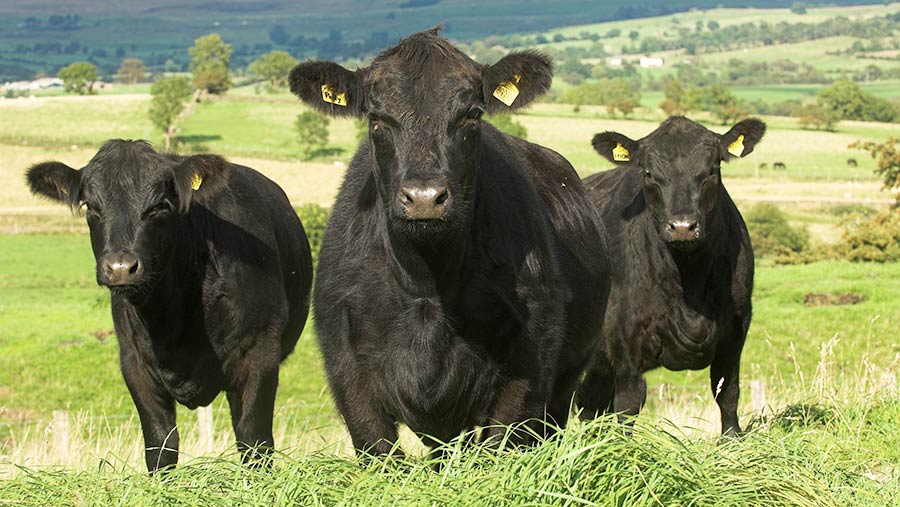Farmer left ‘heartbroken’ after BSE discovery
 Library image © Wayne Hutchinson/FLPA/imageBROKER/Rex/Shutterstock
Library image © Wayne Hutchinson/FLPA/imageBROKER/Rex/Shutterstock A farmer whose cows are facing slaughter after BSE was discovered on his farm has been left “heartbroken”.
The case of bovine spongiform encephalopathy, also known as “mad cow disease”, was discovered in Thomas Jackson’s beef herd at Boghead Farm in Lumsden, between Huntly and Alford, in Aberdeenshire.
The case involved a five-year-old pedigree Aberdeen Angus cow and the disease was discovered during routine testing of animals that die on a farm aged more than 48 months. Four more cows from the herd in the bloodline are facing slaughter.
See also: BSE confirmed on farm in Aberdeenshire
Movement restrictions have been put in place at the farm while further investigations to identify the origin of the disease take place.
BSE is a brain disorder in cattle which can be transmitted to humans who eat infected meat. But government officials have stressed that there is no risk to human health as the animal did not enter the food chain.
Family ‘devastated’
In a statement released through NFU Scotland, Mr Jackson said: “This has been a very difficult time for myself and my wife and we have found the situation personally devastating.
“We have built up our closed herd over many years and have always taken great pride in doing all the correct things. To find through the surveillance system in place that one of our cows has BSE has been heartbreaking.
“Since this has happened we have been fully co-operating with all the parties involved and will continue to do so as we, like everyone, want to move forward and clear up this matter.
“The cohorts and offspring of the cow have now been identified and as a purely precautionary measure they will be slaughtered and tested in due course; again, we are fully co-operating with all the parties with regard to this.”
Surveillance system ‘working’
Scotland’s chief veterinary officer, Sheila Voas, has admitted it could be months before the source of the disease is established. But she said its detection was “proof that our surveillance system is doing its job”.
It is the first case of BSE detected in Scotland since 2009.
NFUS president Andrew McCornick said that when the Scottish government applied for BSE negligible risk status it understood there was every possibility of a sporadic case of BSE emerging, as has been the case in France and Ireland.
“While we lose our negligible risk status, it is not unexpected to see a new case and it demonstrates the efficacy of the surveillance measures in place,” he added.
“This simply brings us back in line with the rest of Great Britain, reverting to where we were 18 months ago.”
Professor Matthew Baylis, chair of veterinary epidemiology at the University of Liverpool, said: “BSE in cattle in the UK is largely over but there is still the odd detected case: one in 2014, two in 2015 and now one in 2018. It is too early to say if this case is significant.”
The Scottish government is urging livestock farmers to stay vigilant and report any unusual clinical signs to the authorities.
